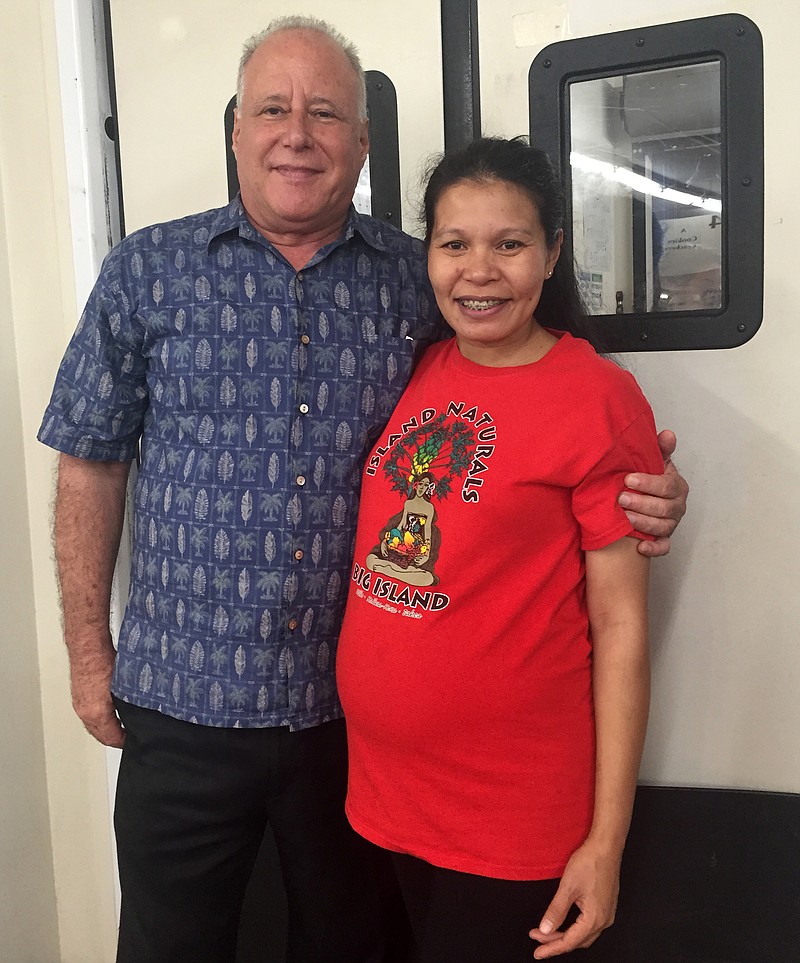HONOLULU (AP) - Hawaii state Sen. Russell Ruderman worries whenever there's a mosquito buzzing in his home.
Until recently, he didn't give the common pests much thought, but now his wife is six months pregnant and there's a growing dengue fever outbreak on the Big Island, where they live.
"It could threaten her pregnancy, as well as her health," he said of the mosquito-borne illness.
The state Department of Health says there were 101 confirmed cases of dengue fever on the Big Island as of Wednesday.
It says it's working with the county to spray 155 properties, including schools, and has started an outreach program to educate people about the illness.
In addition, the U.S. Centers for Disease Control and Prevention is sending an entomologist and a technician to the Big Island next week to further assess the situation.
However, Ruderman and other Big Island lawmakers say the department is downplaying the problem.
"They are not warning people appropriately," said state Rep. Richard Creagan, a non-practicing physician. "It's not a little outbreak now. It's a big outbreak."
Creagan said he wants state health officials to encourage voluntary isolation of people who are infected, be more aggressive about trapping mosquitoes, and warn pregnant women who could suffer complications.
Symptoms of dengue fever include high fever, headache, nausea, muscle aches, bone and joint pain and rash. There's no specific treatment, but bed rest and acetaminophen for fever and pain are recommended.
Symptoms usually go away completely within 2 weeks.
The illness is not endemic to Hawaii but can be spread by mosquitoes that bite infected travelers from endemic areas.
Dr. Lyle Petersen, the director of the CDC's Division of Vector-Borne Diseases who will be on the island next week, previously said the outbreak isn't huge compared to other parts of the world.
"The level of alarm is a little higher than it needs to be," added state Health Director Dr. Ginny Pressler. "We're trying to raise awareness. We're not trying to raise fear."
The department received an emergency appropriation of up to $75,000 to hire public relations firm Bennet Group Strategic Communications to help with communications efforts. The firm created the department's "Fight the Bite" campaign to educate people about ways to control mosquitoes.
The same company was hired to help with a 2001 outbreak that lasted more than eight months, with 92 cases on Maui, 26 on Oahu and four on Kauai.
"Why don't they spend one-tenth of that PR money on medical response?" Ruderman asked. "Don't worry, they're telling us, but there's no one here on the Big Island who isn't worrying."
Stores are selling lots of bug spray, but residents generally aren't changing their attire in light of the outbreak. Many are still wearing shorts and T-shirts instead of long sleeves and pants, as health officials recommend.
There's concern the outbreak will hurt the tourism industry, but officials say they have not seen significant visitor cancelations.
At the Sheraton Kona Resort & Spa at Keauhou Bay, grounds maintenance and landscape workers are taking extra measures to clear standing water that can serve as mosquito-breeding areas, said spokeswoman Katie Vanes.
"Our associates are prepared to speak with concerned guests, but we have not received a significant or frequent amount of inquiries," she said.
Kirstin Kahaloa, executive director of the Kona-Kohala Chamber of Commerce, hopes tourists aren't nervous about visiting the Big Island.
"It's still a safe place to visit as long as you're following CDC recommendations to be careful," she said. "We're here and we're OK. We're taking precautions."
___
Follow Jennifer Sinco Kelleher at http://www.twitter.com/JenHapa. Her work can be found at http://bigstory.ap.org/content/jennifer-sinco-kelleher.
